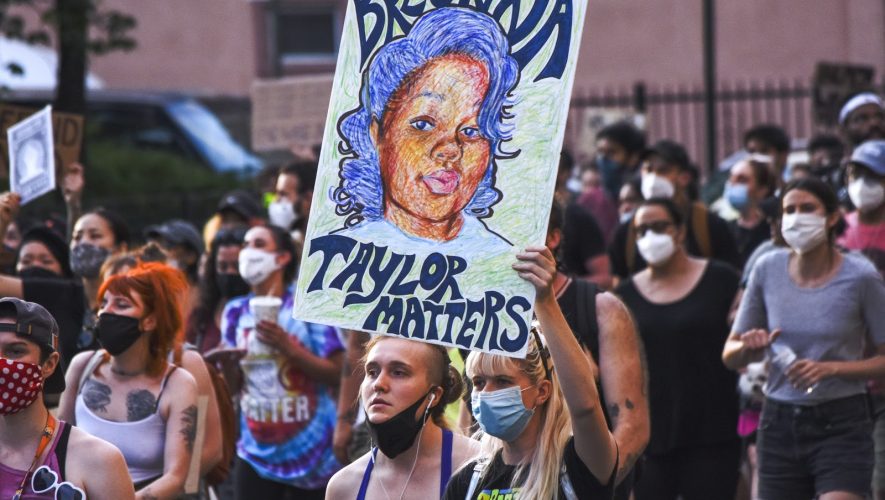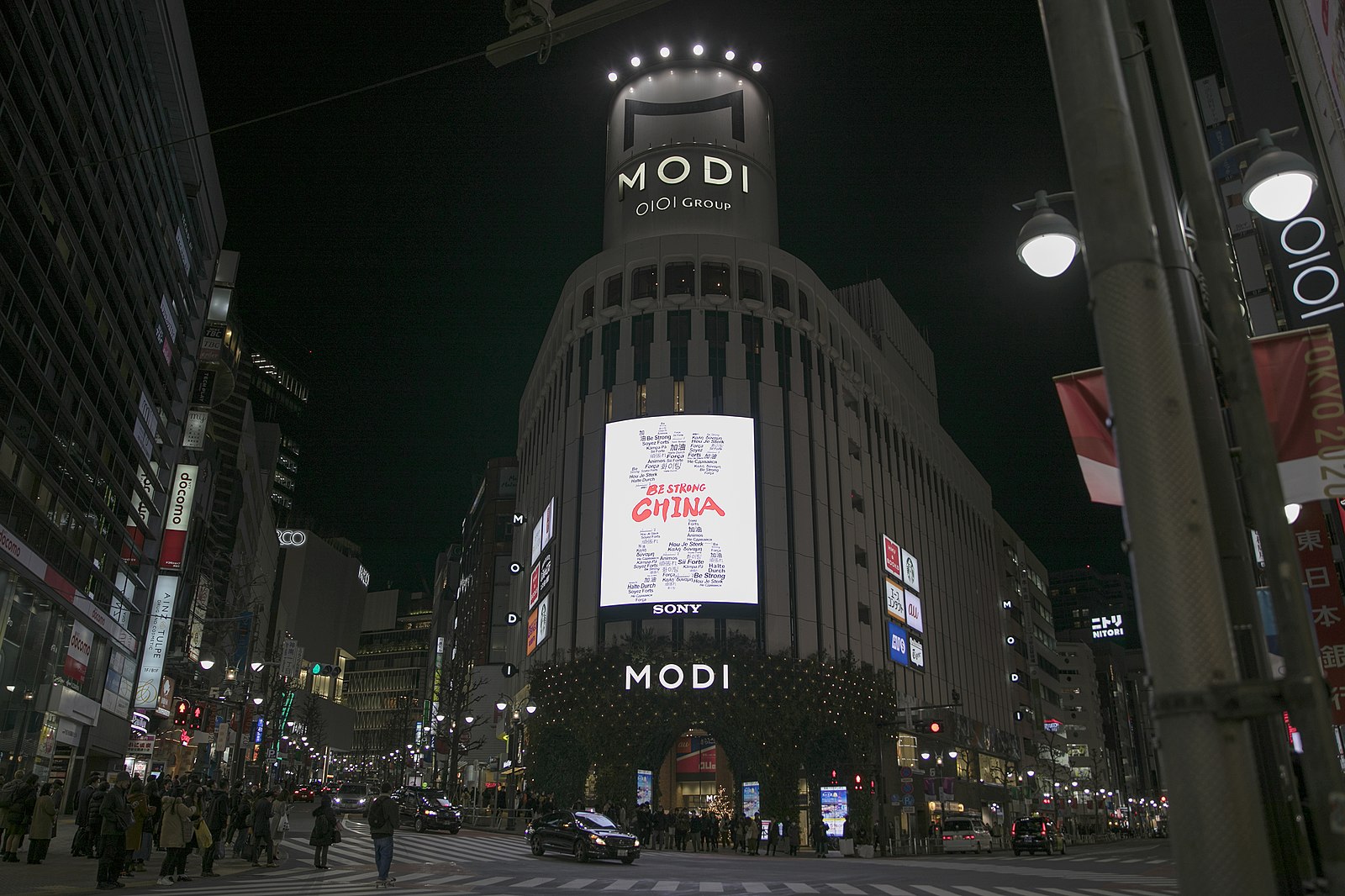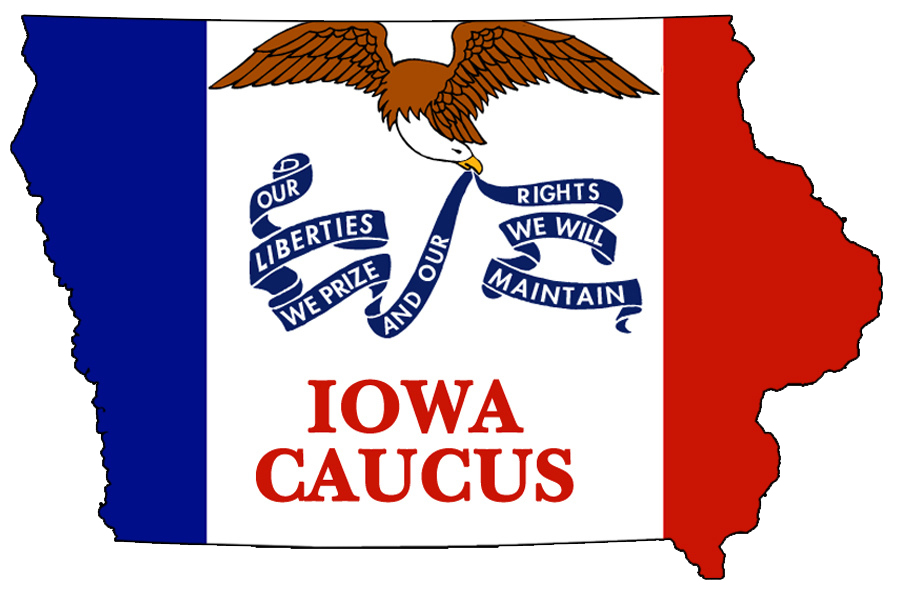No justice, no peace.
All too often, Black women are excluded from the narrative of police brutality and systemic racism. All too often, the names of Black women are excluded from the fight for justice—a reality that is highlighted on social media.
Social media’s powers in mobilizing change are innumerable. Information can spread instantly, allowing testimonials and facts to flow freely to the front of public awareness, cutting through hoards of misinformation. Boosted by teenagers and veteran activists, social media can bring action to the streets and, ultimately, indictments to murderous law enforcement officials in a step away from systemic racism and toward some perfect world.
But viral content can also wreak significant damage. Activism that spreads awareness and boosts resources can quickly morph into content that trivializes and commodifies the narratives of injustice and systemic violence—all under the guise of social advocacy. The goal is traction, but desensitization is an unfortunate side-effect.
In reality, charging police officers for the crimes they commit against Black, Indigenous, and people of color (BIPOC) would be a feeble attempt at retribution. These officers have the blood of a twenty-six-year-old EMT on their hands, who they murdered out of carelessness and disregard for her life. And the blood of a forty-six-year-old father. And a twelve-year-old boy who was playing with a toy. And an eighteen-year-old college-bound high school graduate. And a forty-three-year-old father of six.
These murders were not isolated incidents. There is an epidemic of systemic violence against Black communities.
Last month, a grand jury in Louisville decided not to charge the officers who murdered Breonna Taylor—the twenty-six-year-old EMT—during a raid of her home in March. The officers involved are Jonathan Mattingly, Brett Hankison, and Myles Cosgrove.
Taylor was asleep in her apartment when three plainclothes officers with a no-knock warrant punched down her door in the early hours of March 13. They fired thirty rounds into Taylor’s residence, shooting her six times within a matter of minutes. She was pronounced dead on the scene.
Now-former officer Hankison was indicted for the shots he missed as he fired through Taylor’s window into other homes; he pled not guilty to the three counts of first-degree wanton endangerment. Kentucky Attorney General Daniel Cameron implied that the grand jury could have made an “assessment about different charges,” so as to absolve himself from any responsibility. But two anonymous jurors rebuked Cameron’s assertion, contending that prosecutors never presented them with murder or manslaughter charges. Instead, they were told to consider only first-degree wanton endangerment, since no other charges would “stick.”
The decision came after the city of Louisville reached a civil settlement with Taylor’s family for her wrongful death.
In the months that followed Taylor’s murder, the internet saw a boom of viral content tied to her name and death. Tweets, memes, and TikToks pushing the phrase “Arrest the cops who killed Breonna Taylor” went from powerful calls to action to feeble jokes within a matter of shares.
But as time passes and justice for Taylor feels increasingly unreachable, we ask ourselves what went wrong. Did we not go hard enough for her, or was the response to her murder different somehow? As the officers who murdered Taylor walk free, we know that we have ultimately failed her.
After protesting for months against police brutality and state-sanctioned violence in the names of Taylor, George Floyd, and countless other victims, we watch as Black women are left again without justice within a country designed to break them.
Photo by Atelier Teee
This outcome is familiar for many Black Americans; in the epidemic of police brutality and systemic racism, justice is scarce. But for BIPOC women, it’s almost nonexistent. And the swift response of social media users to turn Taylor’s name from a rallying cry to a meme exemplifies the public’s role in objectifying Black women and remaining complacent in the face of systemic injustice. The memeification of Taylor shows that Black women are more likely to be commodified—even after death and during justice-seeking—than viewed as parties in social movements.
And so the grand jury’s decision was much of the same. And similarly, it was unsurprising to hear that homicide charges weren’t presented to the jury.
Law enforcement has killed 1,345 Black Americans since 2015. While forty-eight of these victims were Black women, murder and manslaughter charges were brought in only two cases. One led to an acquittal, while the other remains pending.
We must also recognize transgender and gender non-conforming BIPOC, particularly trans women of color, within the larger narrative of police brutality. Systemic racism and sexism compound with transphobia, leaving Black trans women disproportionately targeted by hate crimes and police violence. More often than not, they are overlooked, denying Black trans women justice and erasing them from the fight for justice. Based on known and reported murders, trans women of color account for four out of five anti-trans homicides. Twenty-seven of the thirty-three reported trans people murdered thus far in 2020 were Black and Latinx trans women.
Although Black women account for only one percent of fatal shootings where race was known since 2015, they make up 20 percent of women shot and killed by law enforcement. Black women also account for 28 percent of unarmed killings, despite comprising only 13 percent of the female population. It is unclear whether trans women are accounted for in these statistics, as trans women are often misgendered in police and media reports.
The experiences of Black women are ignored and censored, ultimately erasing their victimization from the larger conversation on police brutality. This erasure began within the confines of slavery through dehumanization and the creation of cultural stereotypes. This legacy informs how law enforcement officials and legislators view and treat Black women with stereotypes used to justify violence. Violence created the relationship between Black women and the state. And that paradigm has gone virtually undetected by the public when addressing the legacy of slavery that is inextricably tied to this nation. This legacy of sidelining continues today, even though the Black Lives Matter (BLM) movement was started by three Black womxn, two of whom are queer.
The reason for this erasure is complex, incorporating historically informed narratives on the state-sanctioned violence Black people face and the nuanced, deadly intersections of racism and misogyny. Often, the historical narrative of racism only highlights Black men. Women are still left out, as the public lacks the historical context to conceptualize violence toward them.
This—coupled with the historical and persistent objectification of BIPOC women—results in the further perpetuation of sexual and physical violence against them at the hands of the state. The public does not have the wherewithal to see this reality, let alone name it; but that’s no excuse for inaction. We must create a new structure, a new framework to name and address this epidemic starting with personal education on the legacy of racism in this country.
Breonna Taylor was murdered 194 days ago. In that time, her name has been used for clout, left out of conversations about police brutality, and now her murders have been been let off. BRETT HANKISON, JONATHAN MATTINGLY & MYLES COSGROVE are MURDERS. Black women deserve better.
— Black Lives Matter. (@jordynwindom) September 23, 2020
Misogynoir, coined by queer Black feminist Moya Bailey, describes the intersection between sexism and systemic racism that contributes to how Black women are socially and culturally framed. As a result, Black women are disregarded for the central role they often play as leaders in the fight for justice and civil rights. Misogynoir describes the type of sexism that BIPOC women face, which is deeply rooted in anti-Blackness. The term inherently highlights the strength and power of Black women in navigating these seemingly insurmountable barriers.
The prompt memeification of Breonna Taylor suggests that regardless of intention, the lives and deaths of Black women are trivialized and overlooked in the larger conversation.
While not intentional – Please stop making light of Breonna Taylor’s murder by turning it into a meme or an Instagram swipe. Not the time to insert photos of yourself nor your quirks into something so tragic.
Arrest the cops who killed Breonna Taylor. pic.twitter.com/sVBG69UUkl— Taylor Rooks (@TaylorRooks) June 25, 2020
The memeification of Breonna Taylor refers to the transformation of her name, her murder, and her story into a phrase—“Arrest the cops who killed Breonna Taylor”—to gain viral engagement in order to boost awareness about her case. The phrase originally stood as a powerful slogan in a demand for justice—direct, angry, to the point.
#blacklivesmatter #breonnataylorwasmurdered #bransoncognac pic.twitter.com/mJcPBu6YpQ
— 50cent (@50cent) June 26, 2020
But it quickly turned into a recognizable meme format in the form of a structural gimmick. It has been used as a slogan on t-shirts and as a caption for unrelated posts, including selfies and beach photos. It has turned into an inappropriate and disrespectful punchline, generally unrelated to its corresponding content.
The last one is the most egregious pic.twitter.com/0onYR7oPt2
— Who is you, Chiron? (@NotLaja) June 13, 2020
Taylor’s case went without widespread coverage for three months, emerging only in the wake of Floyd’s murder. Still, the flurries of BLM protests that took place this summer are widely known as the “George Floyd Protests,” erasing Taylor’s name from the narrative—although her murder was at the hands of the state, the same as Floyd’s. As her name quickly stopped trending and the push for reforms and accountability faltered, this memetic phrase served to sustain her name in the sphere of public attention. But people did not respond to Taylor’s murder with the same level of online outrage or on-the-ground action, making the memeification of her death all the more upsetting. She was briefly honored, but ultimately overlooked and commodified.
A Black woman’s murder is the only one we turned into a meme. I’m never gonna forget that.
— Adeninsola (@eyilanke) June 29, 2020
Some claim that using the phrase with unrelated content tricks Instagram and Twitter algorithms into boosting awareness of Taylor’s story, keeping the message in front of users who would otherwise ignore it. But others have called the tactic out as performative activism, a parallel to the widespread posting of black squares on Instagram in June to signal support for BLM.
Regardless of intention, all Taylor memes and viral content spread her name, story, and message—forcing Taylor into headlines and trending hashtags on social media. This constant reminder about the injustice that transpired in the early hours of March 13 will affect how people view the unchecked powers of law enforcement, what they teach their families, and how they vote.
But while some memes urge people to call Louisville police or state representatives to demand justice, other structural gimmicks that start with a recipe for grits and end with the phrase “Arrest the cops who killed Breonna Taylor” don’t lead to action. Sure they put a bug in your ear and trick the people who may otherwise scroll past a BLM post into reading on, but it also trivializes and even disrespects Taylor’s story.
It isn’t all bad, though. Social media made Taylor’s a household name, bringing her case to the forefront of mainstream awareness and keeping her name ringing on and offline. Social media streamlined resources, including GoFundMe accounts for her and others’ families, rent and survival funds, and other valuable initiatives. Social media facilitated celebration, as art and music and remembrance flooded online channels.
Memes can play a valuable role in spreading information, boosting awareness, and ensuring the longevity of social issues within public consciousness long past mainstream news cycles. Easily digestible, accessible, and shareable memes can help keep topics relevant and act as powerful calls to action as internet ephemera and units of modern-day activism.
Memes incorporating the phrase “Arrest the cops who killed Breonna Taylor” attempt to do just that. But again, there’s a fine line between trivialization and calling attention in the name of justice. When algorithm-tricking becomes attention-seeking, the focus shifts from the brutal murder of a Black woman by the state to a game of likes, attention, and personal social capital. And attempts to keep her name in the spotlight and her story relevant as months pass without charges or tangible action have quickly proved misplaced and void of meaning.
this kinda stuff is weird, y'all. please maybe stop? pic.twitter.com/JE2l2Hg52d
— Scream Demby. (@GeeDee215) June 29, 2020
The previous argument was that what some see as trivialization, others see as modern activism. But as we bear witness to Louisville’s decision not to charge Officers Mattingly, Hankison, and Cosgrove for murdering Taylor, it is clear that we failed. Our actions weren’t enough.
Despite that failure, Louisville has agreed to several police reforms in a settlement with Taylor’s family. One such measure is mandating that a commanding officer approves all warrants and affidavits that support property searches. Another implements an early warning system that tracks all use of force incidents, citizen complaints, and investigations, to identify “any police officer in need of additional assistance or training.” Community-related plans such as integrating social workers to support officers are also listed. The department is “researching best practices and social worker qualifications to create an effective program.”
These measures are quite frankly common sense and should not be considered reforms but rather standards that should already be in place nationwide.
While the time has come and passed for a grand jury to indict officers for the murder of Taylor, a federal investigation is underway. The FBI is looking into the legitimacy and lawfulness of the search warrant for Taylor’s apartment and whether her civil liberties were violated.
So what would justice for Taylor entail? Charging the officers involved for the murder of an innocent bystander would have been an appropriate first step in addressing her particular case. Still, tangible, substantial, and sweeping reform is necessary to begin to address the epidemic of police brutality in this country.
Many cite the historic settlement between Louisville and Taylor’s family as retribution enough. But money does not bring Taylor back or take officers who play fast and loose with BIPOC lives off the street. Money is just a bandage and we must establish criminal charges as the norm in cases of police brutality. But most importantly, no community and no family should ever again have to deal with a murder at the hands of the state.
As Taylor’s mother, Tamika Palmer, noted, reform is essential to justice: “Justice for Breonna means that we will continue to save lives in her honor. No amount of money accomplishes that, but the police reform measures that we were able to get passed as a part of this settlement mean so much more to my family, our community and to Breonna’s legacy.”





